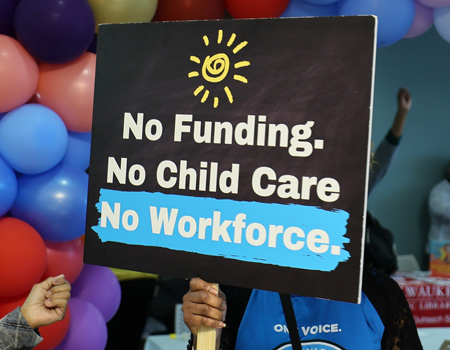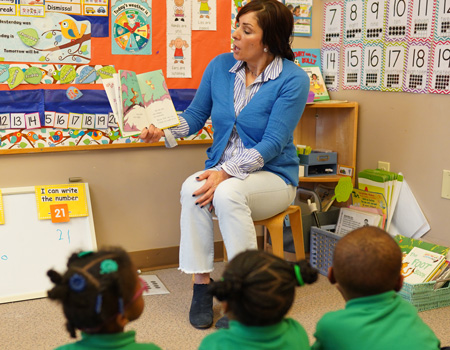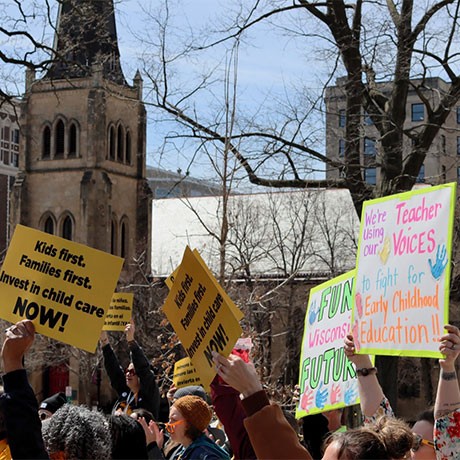 Prioritizing Child Care & Early Literacy
Prioritizing Child Care & Early Literacy
Access to affordable, high-quality early childhood education is vital for families, communities and the economy to thrive. It means:
- Success for kids – supporting child development, reducing special education placement, decreasing grade retention and increasing high school graduation rates
- A stronger workforce – allowing the parents of young children to work and helping employers retain staff and recruit from a more robust talent pool
- Healthier communities – increasing safety and well-being through improved health outcomes and reduced incidence of arrest and addiction

Core challenges
- The cost of care is too high for many parents and families
- Rising operational and payroll costs are too high for child care providers
- Wages are too low for early educators
- These and other factors are contributing to steep declines in access
Share Your Story
Sharing your story is a powerful tool for change. Talking about your experiences with policy makers is the best way to raise awareness of issues and advocate for solutions that work.
Step 1 - Explore
- Identify who represents you in government at the national, state, and local levels: Find my elected officials
Step 2 – Engage
- Sign up for updates from your elected officials and follow them on social media.
- Ask questions about early childhood education and reading at events or town halls held by your local, state or federal elected officials.
- Call, write, and email the local, state, and federal elected officials who represent you to share your stories and opinions on these issues.
Step 3 – Expand
- Encourage your family, friends, and community members to get involved.
- Share data, research, news articles and your personal stories with others on social media.
- Bring others with you to town halls, public hearings and other events. Ask others to join you in contacting elected officials.



